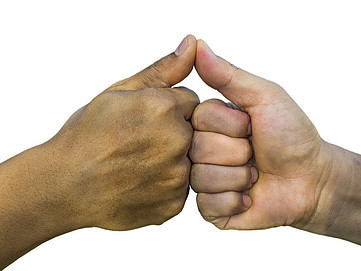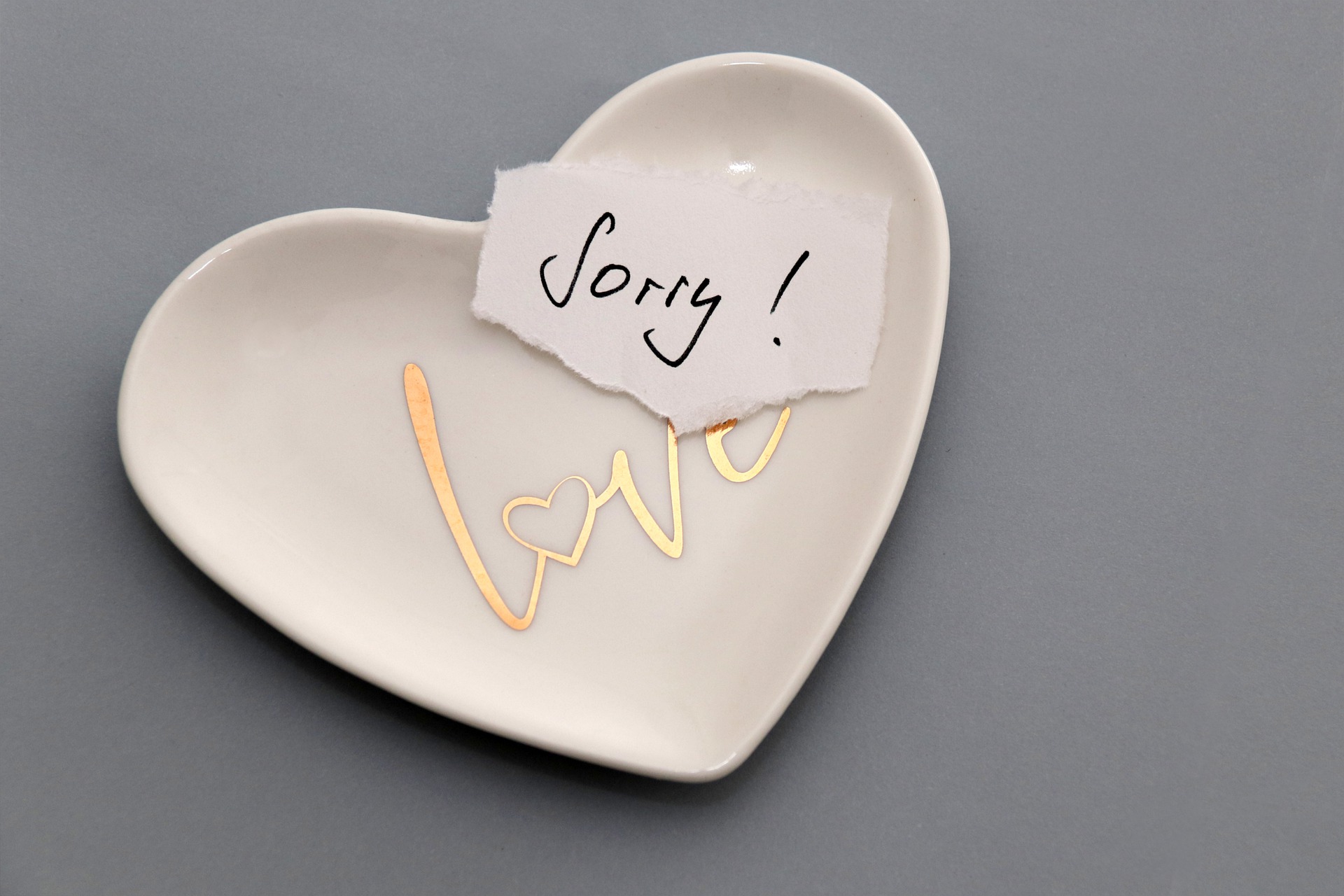Have you ever made a mistake that negatively affects another person? If we are honest with ourselves, we all have. It may have been something as simple as using words that were misunderstood and taken the wrong way. Maybe you lost your temper, or were rude. Maybe it involved another person’s property or another relationship of some kind. 
Learning the right way to apologize can help you live a more peaceful life. Think about the last time you had to apologize to someone, or the last time someone had to apologize to you. How did it go? Was it smooth and easy – or was it rather awkward? Some apologies are more effective than others. Learning to apologize is a valuable skill.
Did it feel effective? What does it even mean to apologize effectively? An effective apology is one that is done at the right time, with the right intentions, that leave people in a good place, without damaging the relationship. Some apologies can actually repair and strengthen a relationship when done sincerely. Here are some tips to keep in mind.
Be ready in case your apology is not accepted. Some people have a difficult time accepting an apology. What will you do if your apology is rejected? Have a plan ready just in case. I recommend being gracious, no matter the other person’s response, and offering to talk again at another time to work things through. Sometimes people just need time. Trust you instincts – will this person be open to talking again later? If you’re sure the answer is no, then just restate the apology, let them know you’re available to talk in the future, thank them for their time, and move on.
 Don’t wait too long. If you wait too long to heal the situation, the wound has more time to fester. Think of it as a nasty cut or scrape. If you wait to long to properly care for it, and clean it out, it may get infected. It doesn’t happen every time, but the possibility is there. The same goes for apologies. If you wait too long to make amends, the situation may get worse and worse in the other person’s mind. It is easy to blow something out of proportion when you are only replaying one side of an uncomfortable story over and over in your mind.
Don’t wait too long. If you wait too long to heal the situation, the wound has more time to fester. Think of it as a nasty cut or scrape. If you wait to long to properly care for it, and clean it out, it may get infected. It doesn’t happen every time, but the possibility is there. The same goes for apologies. If you wait too long to make amends, the situation may get worse and worse in the other person’s mind. It is easy to blow something out of proportion when you are only replaying one side of an uncomfortable story over and over in your mind.
Keep it short and concise. Don’t get too wordy. Remember that it’s not about you – it is just you saying you are sorry. Don’t try to justify yourself unless the other person asks you why or wants more details. Most importantly, don’t try to shift or share the blame. Focus on the needs of the person to whom you are apologizing. Let them talk or ask questions if they need to, but keep you apology brief and sincere.
Speaking of sincere, embrace the sincerity. We’ve all been on the receiving end of apologies that were less than sincere. Make your apology sincere and from the heart. An insincere apology can result in a bigger mess than you had before the apology. It’s not easy to make yourself vulnerable in a potentially hostile situation, it’s essential.
Think about what you are going to say in advance. Practice it if it makes you more comfortable. You want to be confident in your words. Try to listen to the apology with the other person’s ears. If it is something delicate or very serious, consider asking a trusted friend for their opinion of how it sounds. Saying the wrong thing can be worse than the original issue if you are not focused and open to the way the other person may feel when they hear what you have to say.
Offer to make amends in any way that is appropriate. Did you accidentally scratch someone’s car? In your apology, offer to get the scratch repaired. Did the person suffer any personal or financial harm? Offer to make it right. Be accountable and responsible for your actions. It is the honorable thing to do.
When all is said and done, ask yourself what you’ve learned. Was there something you did unintentionally that caused the issue? If so, how will you prevent it from happening in the future. The best way to handle a situation is to do so in a way you don’t need to apologize for later.
In closing, don’t be attached to the outcome. Be bold enough to make your apologies quickly, sincerely, and selflessly. Spend some time choosing your words wisely. It makes a difference. Some apologies are better than others. After you’ve given your apology and done your best to mend the situation, be accepting of the outcome and move on. You’ve done your part, you are not responsible for the other person’s choice to accept it or not.
Find your purpose – find your joy!
Would you like copy of Improve Your Mindset? Just click on the link – it’s my gift to you.
Did you find a few more ideas of your own? If so, I’d love to hear about them in the comments, and as always please reach out with your thoughts.
You can also connect with me via –
Email: info@SerenitiesNow.com
Facebook: https://www.facebook.com/sue.pine.92 or on Instagram: @sue.pine.serenities.now

